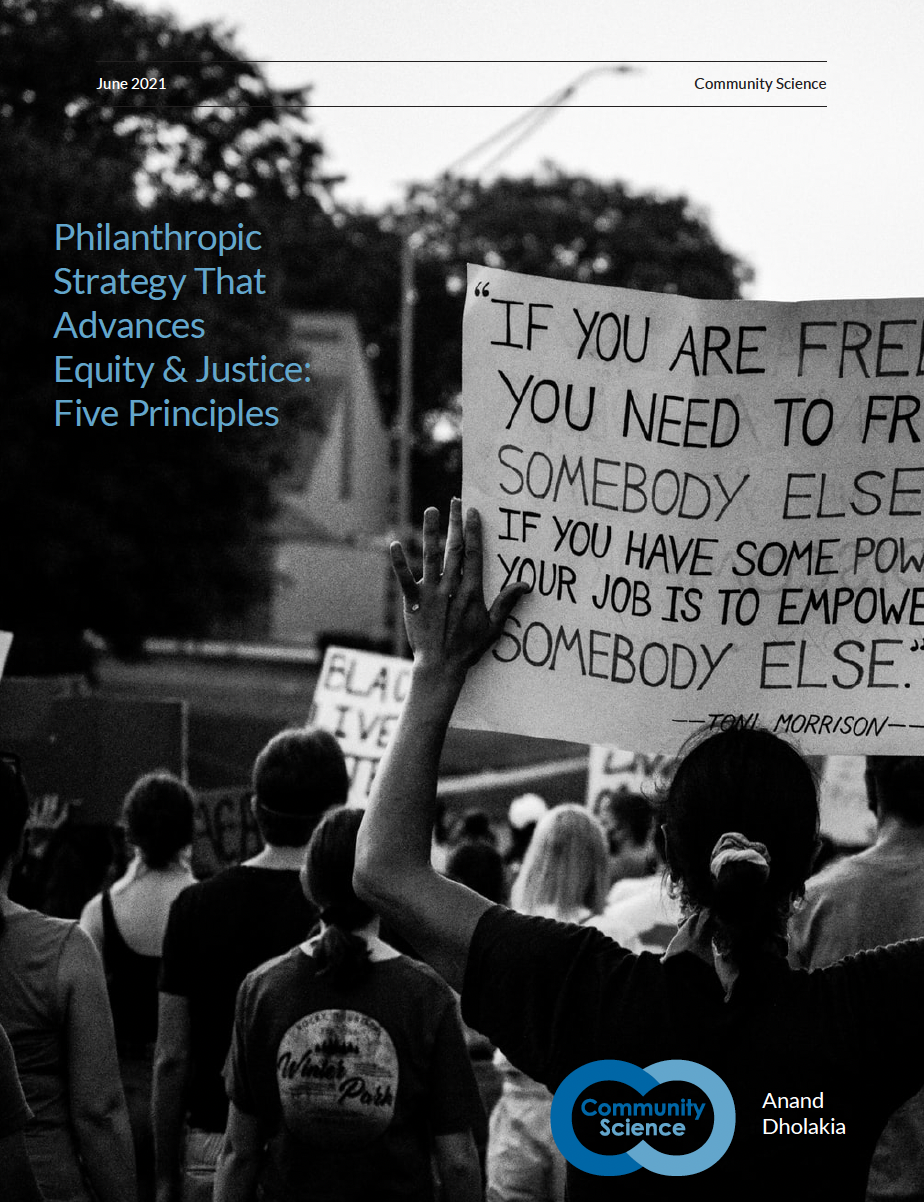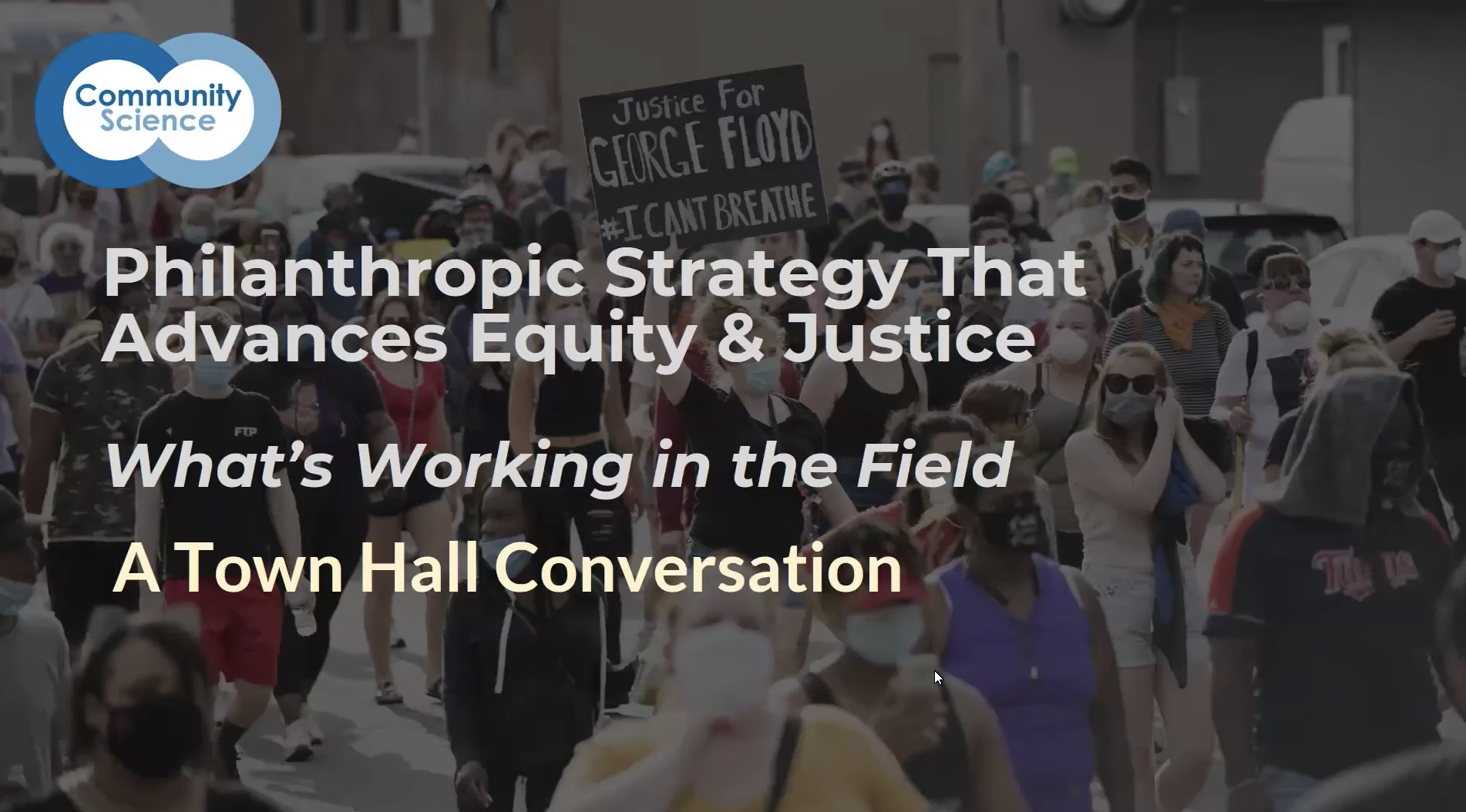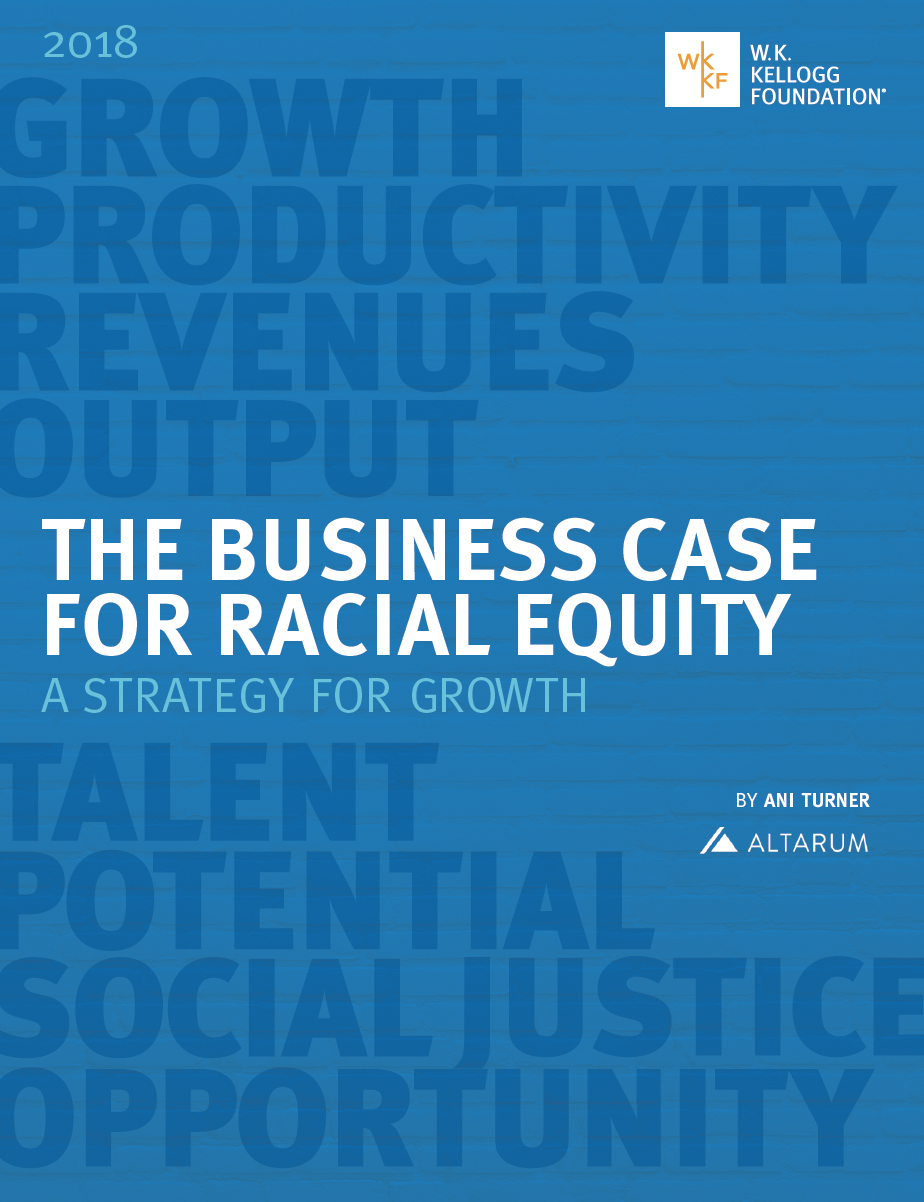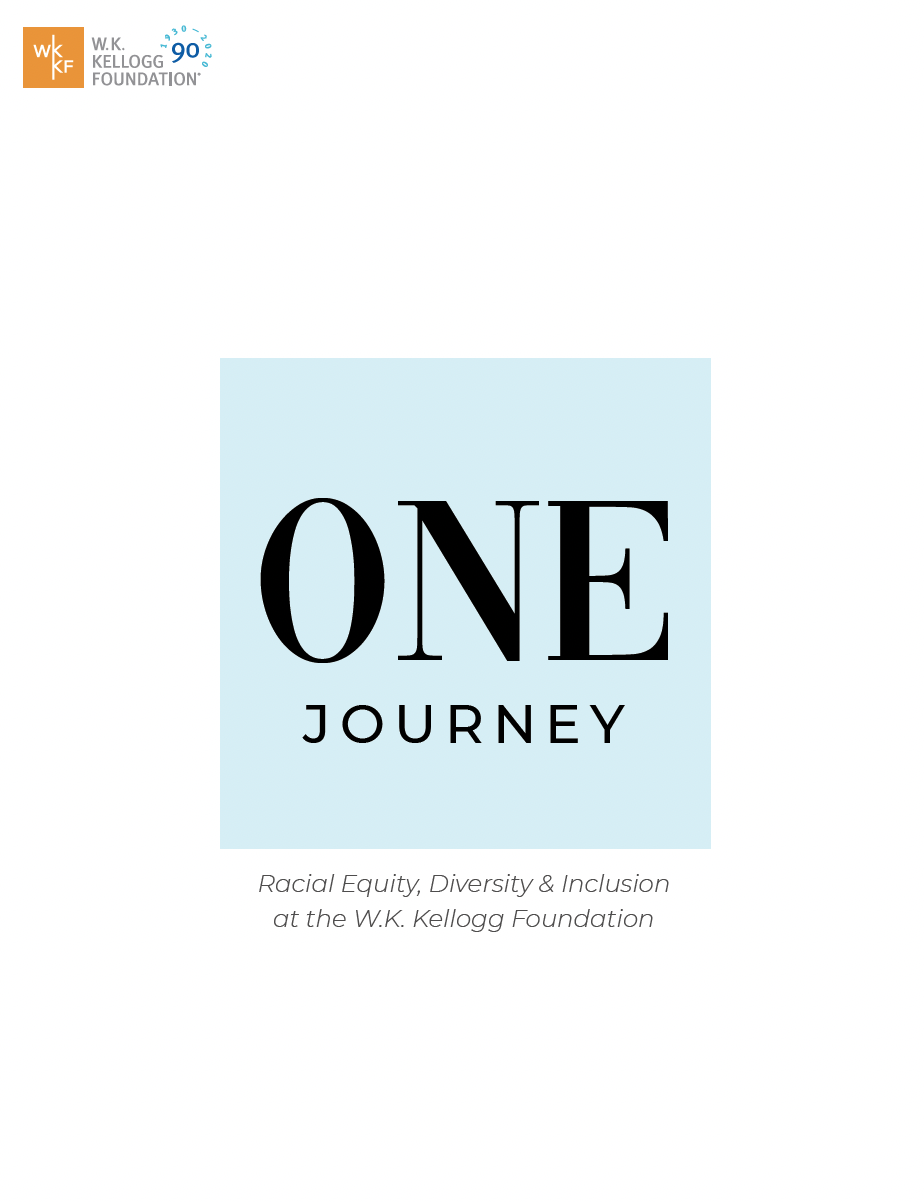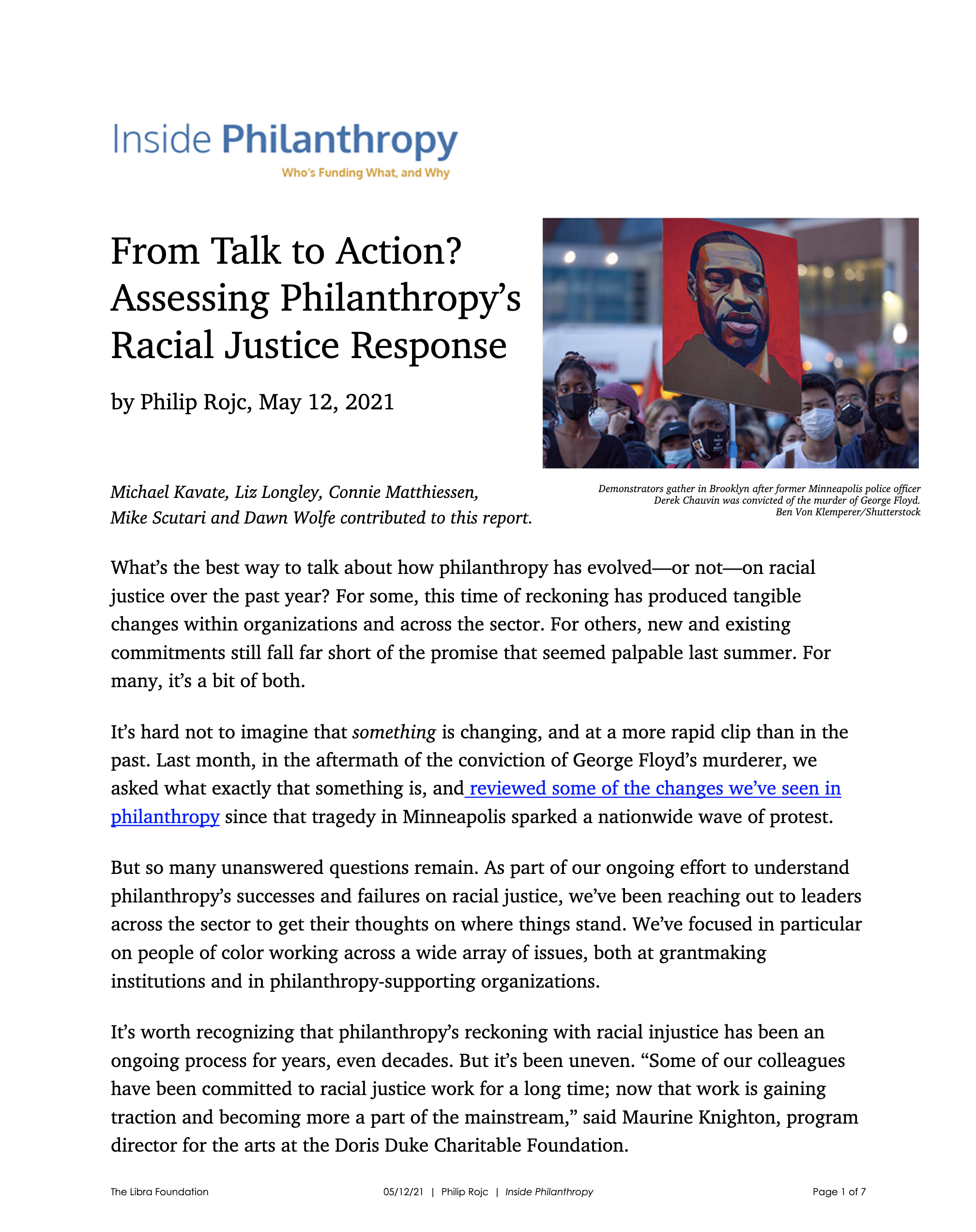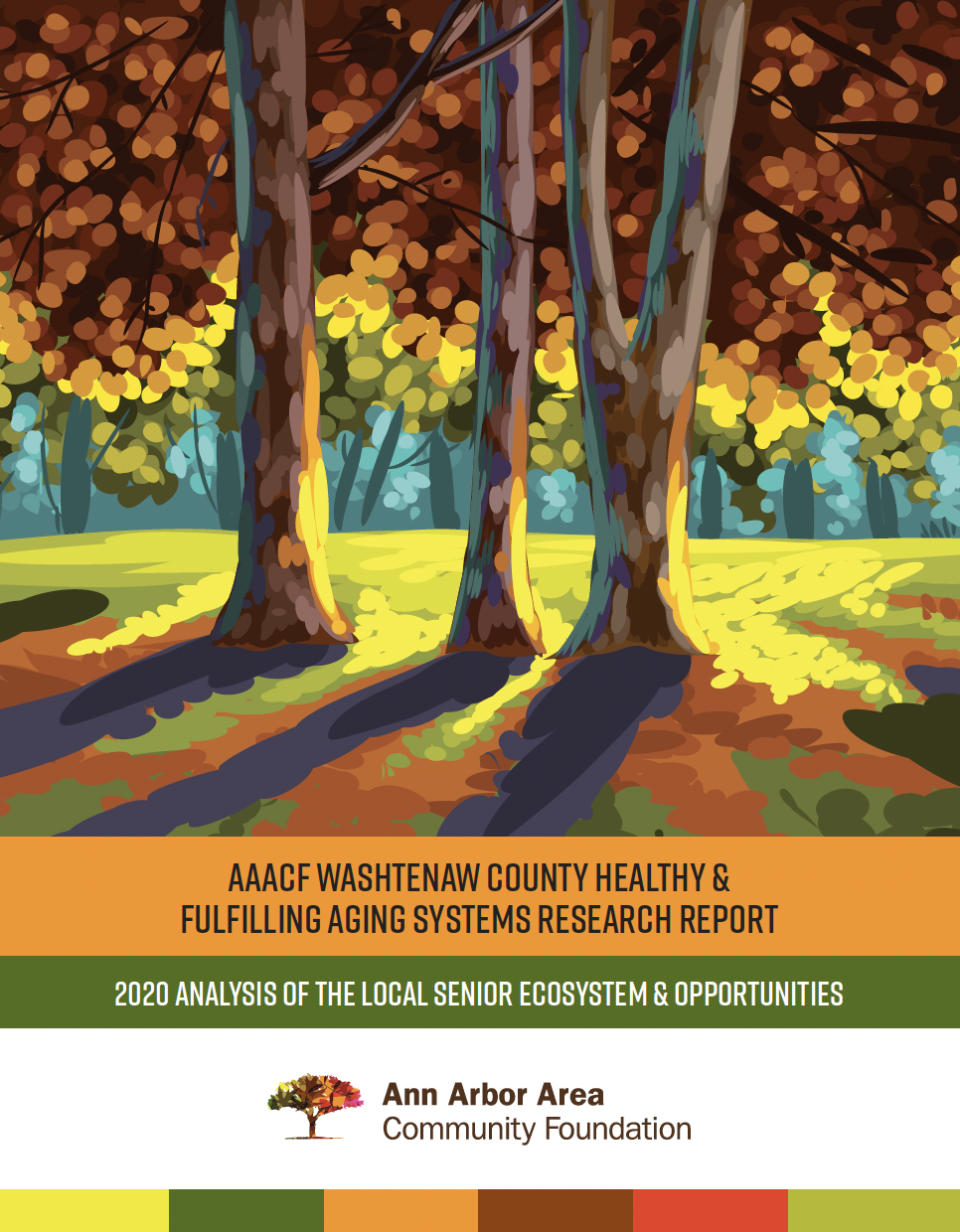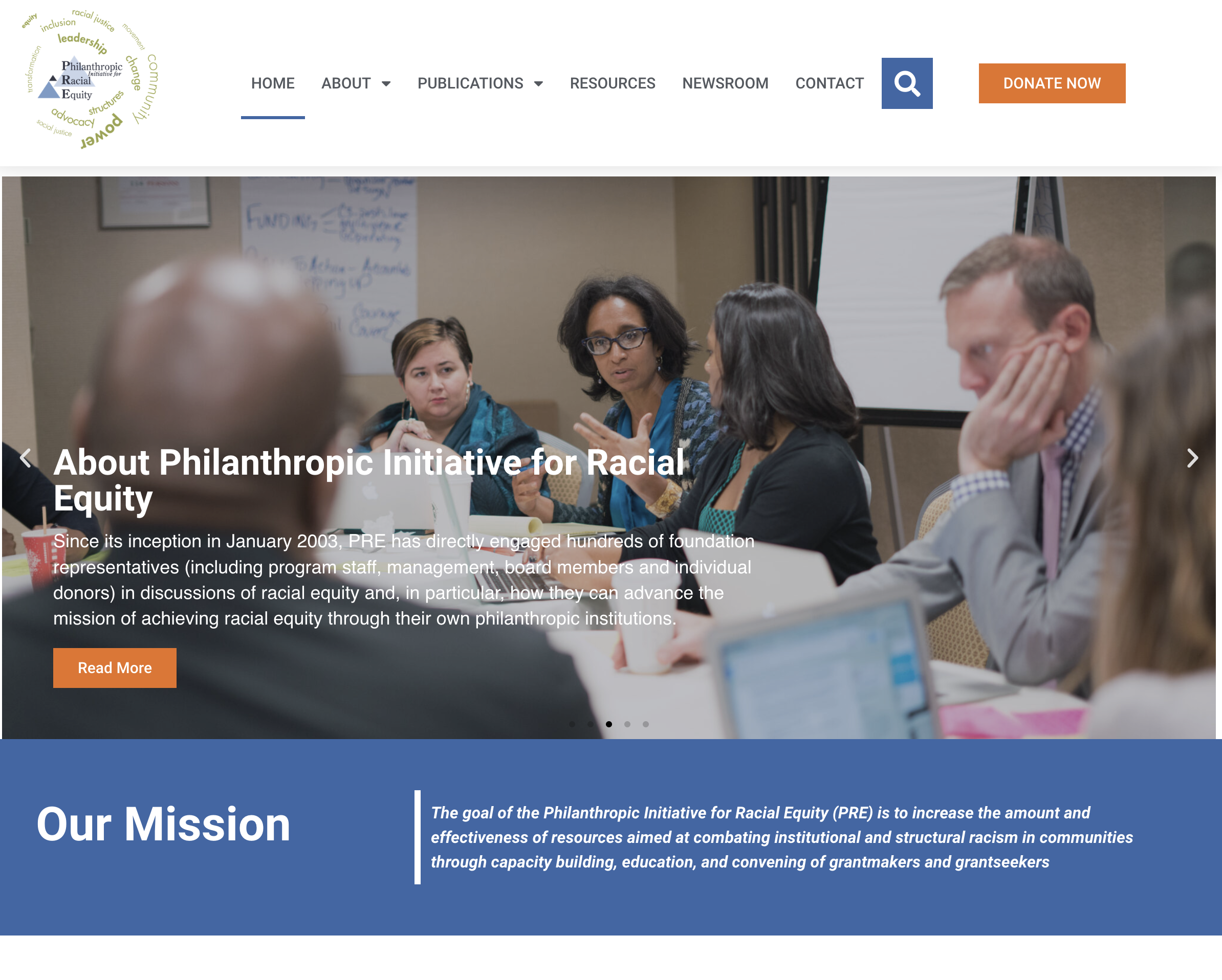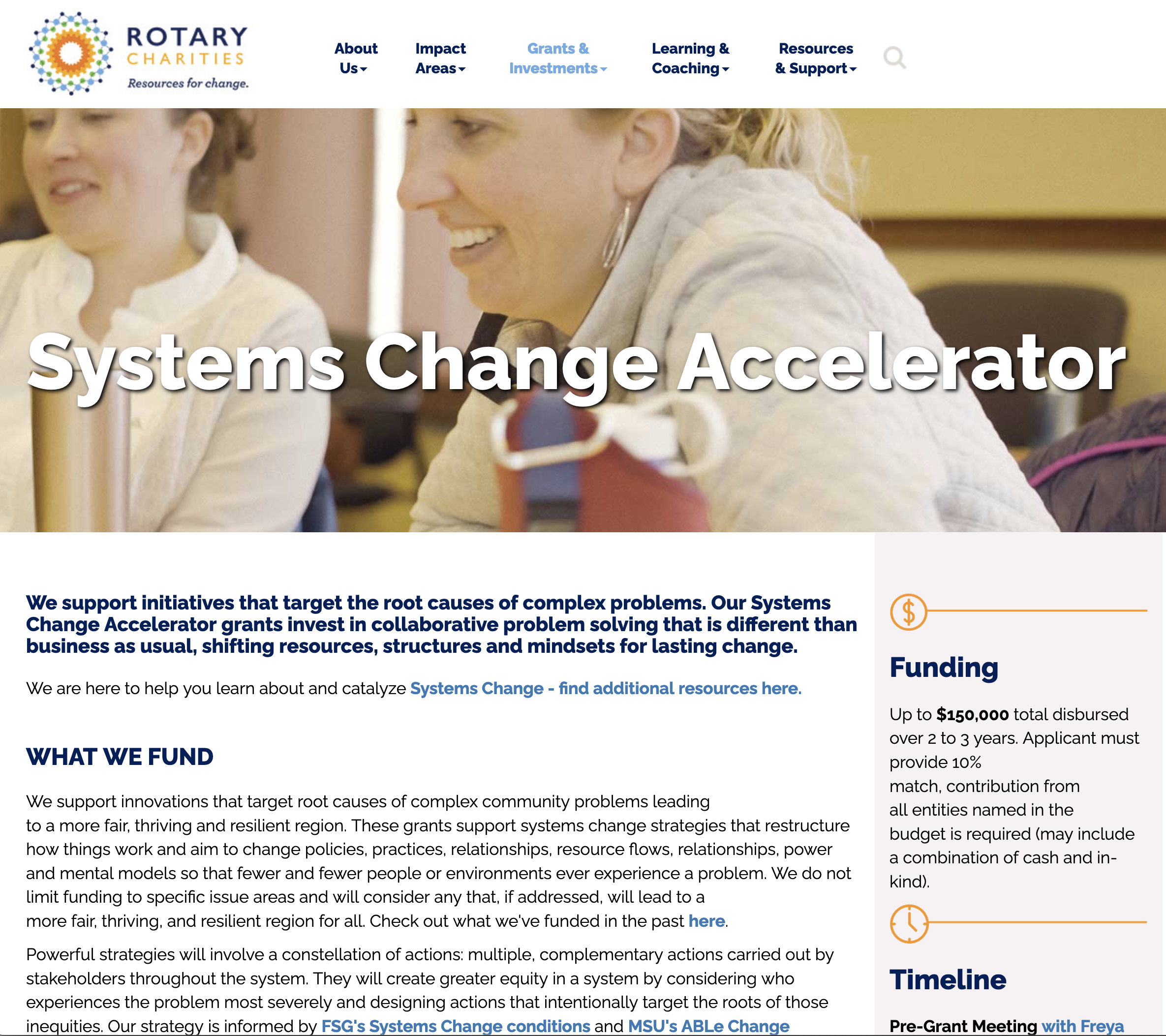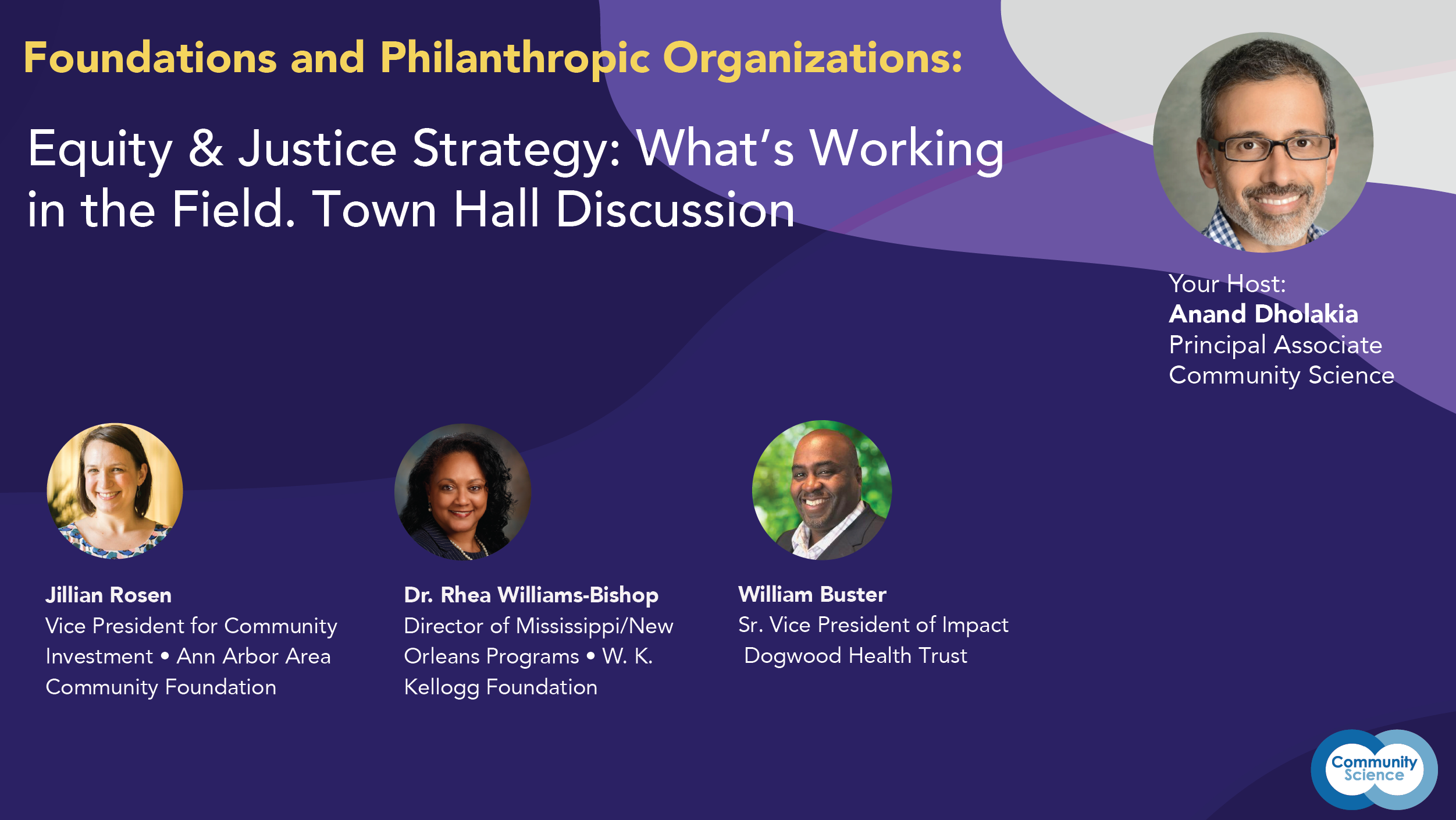
Resources
Click the image below to view the resources offered during our October 6th Town Hall session on Equity and Justice Strategy.
White Paper and Video
Other Resources
Town Hall Recap
- We explored what the principles of strategy for equity and justice looks like in real life, from the perspective of three diverse foundations; how strategy intersects with internal DEI efforts; the importance of engaging community when developing strategy
- To give a sense of the great virtual town hall conversation, we have included a sampling of participant questions and comments below.
- The panelists offered their real-life perspectives
- For further detail please refer to our white paper “Philanthropic Strategy that Advances Equity and Justice: Five Principles”
- We have also included a few resources shared by the panelists and attendees.
What Participants Asked
- “What do equity ‘outcomes’ look like?”
- “How do anti-racist outcomes look different than racial equity outcomes?”
- “Would appreciate hearing whether/how your orgs are intentionally engaging in ‘participatory grantmaking’ and how that has intersected with your equity & justice strategy (e.g., in grantmaking)”
- “How can a local foundation effectively influence the integration of equity and justice among other community stakeholders?”
- “How do fellow funders account for funding an ecosystem (e.g. grassroots and grasstops) that may have contested spaces? (e.g. agendas on housing, private equity/financing)”
- “Hoping to better understand how we need to change to integrate equity in our work”
What Participants and Panelists Shared
- “Great point Jillian. As we build our strategy, we make sure that our communities have input. As we build out our next 5-year strategic plan, we have had many touchpoints (meetings, convenings, listening sessions) to get input. We have also created ecosystem maps to ensure we can identify the “sweet spot”. In a sense, we are literally co-creating the strategy.” (Dr. Rhea Williams-Bishop)
- “This diagram is one of the best that I have seen illustrating the SDOH”
- “You are preaching to our choir, William. It requires a lot of board, community, and partner awareness building, changing expectations, and asking for long-term commitment.”
The Panel
About The Host
Anand Dholakia, Principal Associate @ Community Science
Anand has expertise in strategy development for organizations and complex initiatives, collective action, capacity building, and developmental evaluation. His work focuses on helping organizations drive community and systems change in the pursuit of equity and justice, in both national and place-based settings. He has experience working with national and local foundations, cross-sector networks, nonprofit service provider, advocacy and intermediary organizations, community-based groups, and government agencies. Anand has worked in the areas of early childhood, health, youth development, K-12 and postsecondary education, economic security, and healthy and fulfilling aging, including working at the intersections of these issues. Anand specializes in developing holistic, adaptive equity strategies by engaging community members and cross-sector stakeholders and by recognizing the daily lived experience and assets of communities, roles of systems and programs, and diversity of stakeholders working across the social change ecosystem. His work has been applied to shift conversations and resources across communities and to help accelerate national equity movements.
About The Guests
Jillian Rosen, Vice President for Community Investment @Ann Arbor Area Community Foundation
As the Vice President for Community Investment at the Ann Arbor Area Community Foundation (AAACF), Jillian oversees AAACF’s impact investing, grantmaking programs, community initiatives, and strategic partnerships. After earning her BA in anthropology from the University of Maryland, Jillian worked in the nonprofit sector, where she worked on issues she is passionate about social justice, poverty alleviation, and youth engagement in philanthropy. Her initial experience in the nonprofit sector concretized her understanding of systemic injustice. It fueled her desire to return to school at Brandeis University, where she received an MBA and a Masters in Nonprofit Professional Leadership. When her family determined to move to Ann Arbor, AAACF seemed like a perfect fit given Jillian’s understanding of strategy, people, and what makes communities thrive.
William Buster, Senior Vice President of Impact @ Dogwood Health Trust
William is a North Carolina native who has built a career in philanthropy. At Dogwood, he leads the Foundation’s Impact Team, and ensures that Dogwood repeatedly lives up to its commitment to Diversity, Equity and Inclusion. William provides oversight for the Foundation’s grantmaking and program related investment strategies, which includes leading the design, development, delivery and evaluation of Dogwood’s work. He also provides oversight to ensure grants and program related investments match the strategic direction established by the Board and ensure that programs are achieving the desired outcomes.
Dr. Rhea Williams-Bishop, Director of Mississippi/New Orleans Programs @W. K. Kellogg Foundation
Rhea Williams-Bishop is director of Mississippi and New Orleans Programming for the W.K. Kellogg Foundation in Battle Creek, Michigan. In this role, she supports the foundation’s efforts to promote thriving children, working families, and equitable communities.
Williams-Bishop is responsible for leadership and vision in program conceptualization, design, planning, management, coordination, communication, evaluation, policy, and learning of grantmaking in Mississippi and New Orleans. Williams-Bishop supports and facilitates the community change process within the region in alignment with the foundation’s mission and strategic framework, in collaboration and partnership with grantees and other external partners in the region, as well as other WKKF staff.

